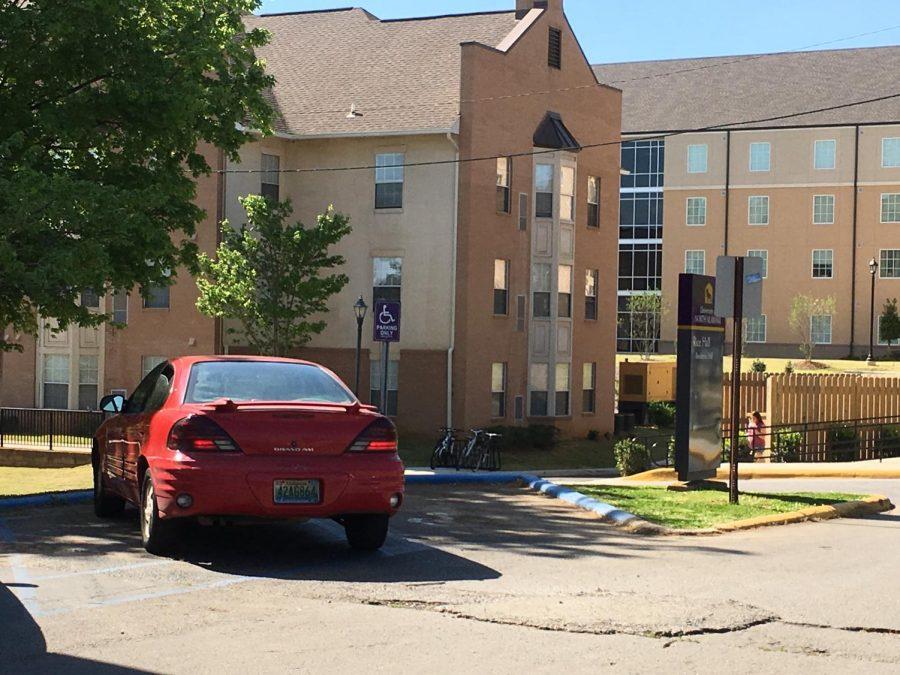Police crack down on handicapped parking
April 29, 2016
The university police department is trying to put the brake on parking issues.
The UNA Police Department is trying to prevent students from parking in the handicapped spaces outside the residence halls.
Students cannot park in handicapped spaces or yellow curb spaces even if they have their hazard lights on, said Chief of University Police Kevin Gillilan.
However, the police made accommodations about a month ago for students who need to unload or load their vehicles, he said.
Students can go to the University Residences Office and request a pass that allows them to park in a space for 30 to 45 minutes.
“If they’re going home for the weekend and need to load some stuff, (the passes) keep them from having to carry the heavy stuff across campus because I realize (students) can’t do that,” Gillilan said.
During busier times of the year, when many students are moving in and out, the passes last for a shorter amount of time, said Director of University Residences Kevin Jacques.
“As long as students are parked there within that time frame, they should not have a problem,” Jacques said.
But not all students know about the procedure to properly park around the residence halls.
Junior Therese Schexnayder often helped her sister carry her belongings to and from a residence hall, she said.
“When (my sister) first moved in, the person behind the desk (in the University Residences Office) said that it was OK to park there if we put our flashers on just to bring stuff in and out of the building,” Schexnayder said. “I wasn’t parking there for long periods of time, but after having done that all semester, a cop tried to give me a ticket.”
The University Residences office does not condone students parking in handicapped parking spaces with their hazard lights on, Jacques said.
Some students do not agree with the parking regulations on campus.
“(The University Police Department) monitor(s) social media,” Gillilan said. “I (have) a kid on Snapchat burning a parking ticket saying, ‘They think I’m paying this. They’re crazy.’ It’s almost humorous to me because I guess he thinks he’s making a point, but he isn’t going to be able to register for class until he pays that ticket.”
Schexnayder said she thinks the police could do a better job of clearing the issue up.
“I thought it was unfair that the cop’s solution was to fine a whole bunch of students rather than have conversations with people or try to get on the same page with the people in the (residence office) that were giving students a wrong idea,” she said.
The university needs to be consistent with the messages employees give students, Schexnayder said.
“I think the root of the problem is that there isn’t adequate parking for the dorms, which is why people are parking in the handicapped parking spots in the first place,” Schexnayder said.
Students can consult the university’s handbook or the UNA Police Department website to find out where they can and cannot park, Gillilan said.



![Caleb Crumpton [COURTESY OF UNA SGA]](https://theflorala.com/wp-content/uploads/2024/07/caleb-crumpton-courtesy-of-SGA-425x600.jpg)






